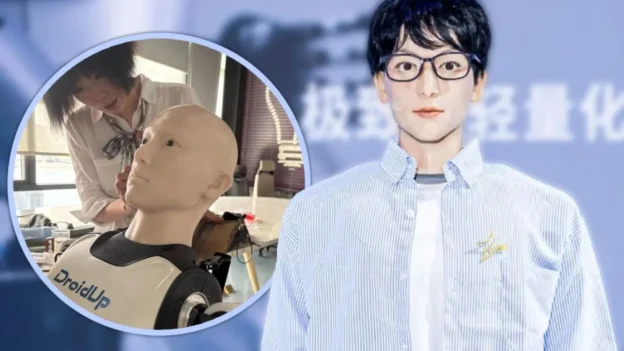The entry of the robot Xueba 01 into a doctoral program at the Shanghai Theater Academy has shaken the country’s academic and cultural world. With a human appearance and interactive abilities, this humanoid records the integration of artificial intelligence in the performing arts.
Admission of the robot Xueba 01
Xueba 01, developed by Shanghai University for Science and Technology together with DroidUp Robotics, was accepted into the STA’s PhD program in Drama and Film during the World Conference on Artificial Intelligence. The institution seeks to explore how AI can play an active role in acting, stage design and theatrical storytelling.
This robot will begin training in September with a special focus on Chinese opera. It will learn body expression, scripting, set design and motion control. It will also collaborate with human students in rehearsals and classes. The tutor in charge of the project is renowned artist Yang Qingqing, who mentioned that the interactions between the robot and the students have generated unexpected aesthetic and pedagogical reactions.
In social networks, the news provoked mixed opinions. While some praise the initiative as a milestone in the convergence between technology and culture, others question the emotional authenticity that an algorithm can bring to a deeply human art form. Some critics point to whether the inclusion of a robot could displace resources or visibility of real students.
Xueba 01 defines himself as an “artificial intelligence artist“. According to his programming, he aspires to actively participate in theatrical projects while contemplating directing operas or founding a robotic studio after graduation. Although his future is uncertain, the experiment opens up new questions about the role of machines in the human creative process.
Source and photo: SCMP

